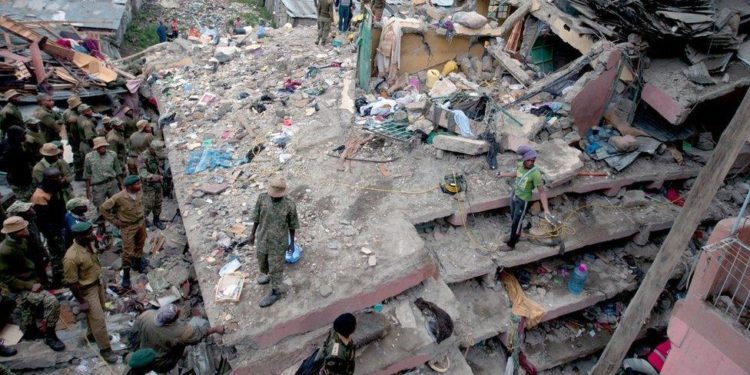At the beginning of the year, Kenya experienced a worrying trend that underscored the fragility of the country’s real estate sector. After a series of heavy rains, multiple buildings across the country crumbled, unable to withstand the forces of nature. Particularly in Nairobi, several structures collapsed, raising critical questions about the integrity of these developments. As we dig deeper into this issue, it becomes evident that the problem goes beyond natural forces; it points to deep-rooted systemic failures. This report outlines the primary causes of substandard buildings in Kenya.
One of the most glaring causes of substandard real estate developments in Kenya is corruption among county government officials. These officials, tasked with ensuring that building standards are adhered to, often approve substandard structures in exchange for bribes. This corrupt practice allows developers to bypass regulations, compromising safety and quality standards. The consequences are dire; poorly constructed buildings, often in non-compliant areas, pose a significant risk to human life and property.
Riparian areas; lands adjacent to rivers or water bodies are meant to remain undeveloped to prevent environmental degradation and ensure safety. However, greedy developers, motivated purely by profit, illegally encroach on these sensitive areas. By constructing in these zones, they not only disrupt natural watercourses but also create unsafe living conditions. Buildings in these areas are more susceptible to flooding and ground instability, making them prone to collapse, especially during heavy rains.
In many instances, residents and the general public are aware of the violations taking place around them but fail to raise concerns. This apathy or fear of speaking out against developers emboldens those cutting corners. When no objections are raised, other developers are encouraged to follow suit, leading to a proliferation of unsafe structures across the country. Civic responsibility plays a crucial role in curbing these violations, and the absence of it only fuels further degradation.
While Kenya boasts a pool of qualified professionals in the real estate sector, the involvement of incompetent individuals in the development process remains a major problem. Architects, engineers, and contractors who are not up to par often cut corners to save on costs or reduce timelines. This results in buildings that do not meet the required safety or structural standards, creating ticking time bombs within urban centers.
Adding to the problem is the rise of unqualified individuals masquerading as professionals in the construction industry. These ‘quacks’ often offer their services at significantly lower costs, attracting unsuspecting or complicit developers looking to minimize expenses. With no formal training or expertise, these individuals fail to adhere to proper construction practices, resulting in structures that are dangerously substandard. The government has taken steps to crack down on these practices, but the problem remains widespread.
To cut costs further, many developers resort to using substandard or low-quality building materials. While this may reduce initial expenses, it drastically compromises the structural integrity of buildings. From weak cement mixes to poor-quality steel, the use of inadequate materials is a major contributor to the collapse of buildings during adverse weather conditions or even under normal circumstances. Short-term savings often lead to long-term disaster, with lives and investments at stake.
The collapse of buildings in Kenya is a symptom of a deeper crisis within the real estate sector. Addressing these issues requires combined efforts involving stricter enforcement of regulations, greater accountability among professionals, and a more proactive public. Without these changes, Kenya’s real estate market will continue to see tragedies that are both avoidable and tragic.

















